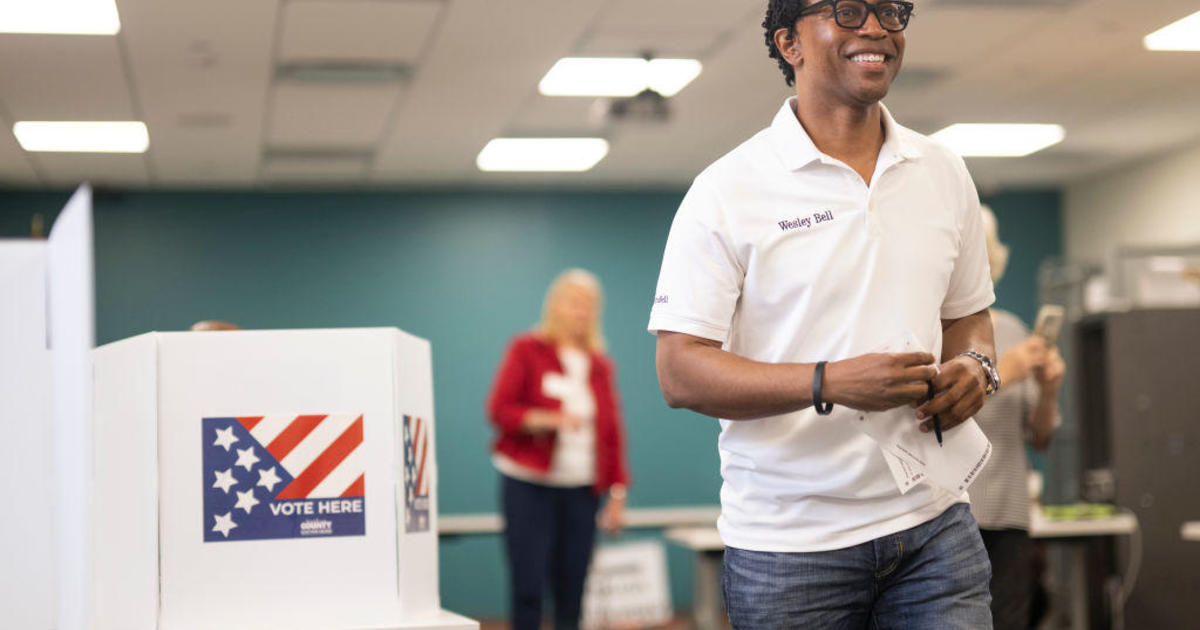Democratic Rep. Cori Bush of Missouri faced a tough defeat in her reelection bid on Tuesday, losing to primary challenger Wesley Bell, a St. Louis County prosecutor. This loss marked a significant moment for Bush, who was a member of the progressive congressional group known as “The Squad.”
Bush made history when she was elected in 2020 as the first Black woman to represent Missouri, the first nurse, and the first organizer from the Black Lives Matter movement to serve in Congress. Her primary race against Bell in Missouri’s 1st Congressional District was one of the most expensive House primaries in 2024.
Throughout her campaign, Bush emphasized her commitment to fighting for the people in her district. She highlighted her decade-long presence in the community, transitioning from an activist to a “politivist,” as she called herself. However, Bell criticized Bush for not effectively working with others and claimed that her approach was detrimental to their district.
The primary contest between Bush and Bell gained national attention, particularly after New York Rep. Jamaal Bowman, another member of The Squad, lost his primary earlier in the year. The significant spending on ads in both races underscored the intensity of the competition and the stakes involved.
As the campaign unfolded, Bush found support from fellow Squad members, including Alexandria Ocasio Cortez, Ilhan Omar, Rashida Tlaib, and Summer Lee. They rallied behind her, recognizing the challenges she faced in the primary race.
One of the key issues that emerged during the campaign was the handling of Michael Brown’s death in Ferguson, Missouri, in 2014. Bush, who had been actively involved in organizing demonstrations following Brown’s death, remained close to the Brown family. In contrast, Bell, who served on the Ferguson City Council and later became the county prosecutor, reopened an investigation into the case but ultimately did not bring charges against the officer involved.
The dynamics of the campaign shifted as leaked recordings revealed a conversation between Bush and Bell, where Bell expressed that he was not running against her. This revelation added a layer of complexity to their interactions and highlighted the political maneuvering that often characterizes primary races.
Super PACs also played a significant role in the campaign, with the United Democracy Project spending millions on ads both supporting Bell and opposing Bush. Their involvement underscored the broader political interests at play in the race and the efforts to sway voters through targeted messaging.
Despite the challenges she faced, Bush remained hopeful about the future, expressing her commitment to continuing her work around reproductive rights, supporting the unhoused, and advancing the Equal Rights Amendment. She emphasized the importance of securing the majority in November to further her legislative agenda.
In contrast, Bell outlined his priorities if elected, focusing on issues such as jobs, gun safety, and affordable healthcare. He expressed a desire to bring a spirit of collaboration and effectiveness to Washington, highlighting his vision for representing the district.
The outcome of the primary race between Bush and Bell reflected the broader dynamics within the Democratic Party and the challenges faced by progressive candidates. While Bush’s loss was a setback, it also highlighted the complexities of navigating political landscapes and the importance of grassroots support in electoral campaigns.
As the dust settled on the election, both Bush and Bell reflected on the campaign, acknowledging the intensity of the race and the issues that divided them. The outcome served as a reminder of the fluidity of political dynamics and the resilience required to navigate the complexities of modern-day politics.









